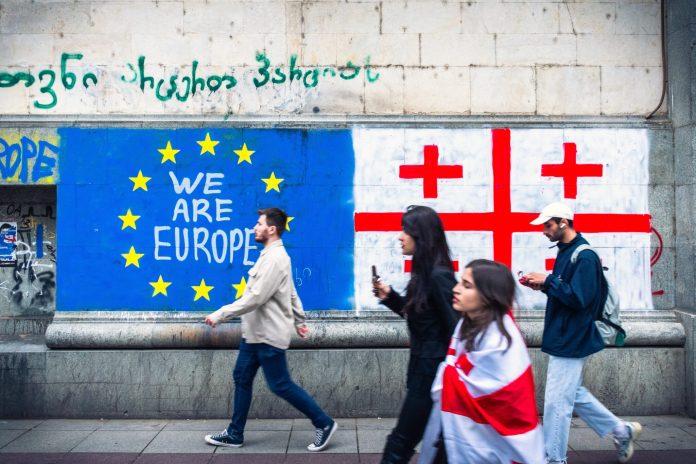The EU was ready to put Georgia’s candidate status at stake in response to its law on “foreign agents”, Foreign Policy reported.
Last December, the EU granted Georgia candidate status for EU membership. However, the bloc is now deeply at odds with Tbilisi after the ruling Georgian Dream party passed a controversial bill. The move provoked protests on the streets of the capital and ongoing violent clashes between demonstrators and police.
The Georgian government has defended the bill, saying it is necessary to increase transparency, protect against “pseudo-liberal values” promoted by foreigners, and protect the country’s sovereignty. Georgian President Salome Zourabichvili announced on May 19 that she had vetoed the bill. However, another parliamentary vote could override her veto.
More than 80 per cent of Georgians support EU membership, which is also enshrined as an ambition in the country’s constitution. Josep Borrell, the European Union’s foreign-policy chief, said:
The adoption of this law negatively impacts Georgia’s progress on the EU path. The choice on the way forward is in Georgia’s hands. We urge the Georgian authorities to withdraw the law, uphold their commitment to the EU path and advance the necessary reforms detailed in the 9 steps.
Criticism of the law
Many representatives of Georgia’s civil society and opposition parties found the statement of support for pro-European Georgians weak, said Tinatin Japaridze, a Washington-based risk analyst at the Eurasia Group.
This makes the likelihood of any punitive measures, specifically sanctions from the EU, less likely in the immediate term. I think we are going to watch Brussels try to take its time to figure out exactly how the situation evolves over the next few weeks and months.
By contrast, the United States was much more brazen. James O’Brien, the US assistant secretary of state for European and Eurasian affairs, warned that Washington could impose financial and travel restrictions if the bill was not changed.
If the law goes forward without conforming to EU norms and this kind of rhetoric and aspersions against the U.S. and other partners continue, I think the relationship is at risk.
The protests, which have intensified and intensified in the country’s largest cities since the law was passed, are mainly driven by the country’s youth. Unlike older Georgians, some of whom retain nostalgia for the Soviet Union, young Georgians have less sentimental ties to Russia and see the country’s future only within the EU.
Venice Commission’s response
In an urgent opinion published on May 21, 2024, the Council of Europe’s Venice Commission strongly recommends the repeal of Georgia’s Law on Transparency of Foreign Influence in its current form, the Council of Europe website reported.
The opinion analyses the law’s compatibility with applicable international and European standards. It concludes that the restrictions imposed by the law on the rights to freedom of expression, freedom of association and privacy are incompatible with the strict criterion established by the European Convention on Human Rights and the International Covenant on Civil and Political Rights. The law does not fulfil the requirements of legality, legitimacy, necessity in a democratic society and proportionality.
The law, ostensibly aimed at ensuring transparency, objectively leads to the risk of stigmatisation, silencing and ultimately the elimination of associations and media outlets. The Venice Commission strongly recommended that the Georgian authorities abandon the special registration regime, reporting and public disclosure requirements for organisations and internet media.
While Georgia’s existing legislation already contains provisions requiring organisations subject to the law to register and report, including on sources of funding, no convincing explanation was given as to why the existing obligations would be insufficient for transparency purposes.
In case the existing provisions proved insufficient, the Georgian authorities should consider amending the existing laws in compliance with European and international standards.
In particular, genuine representative (lobbying) activities on behalf of foreign countries could be regulated in accordance with European standards if the current legislation proves inadequate.
